By NJ Ayuk, Executive Chairman, African Energy Chamber
|
|
|
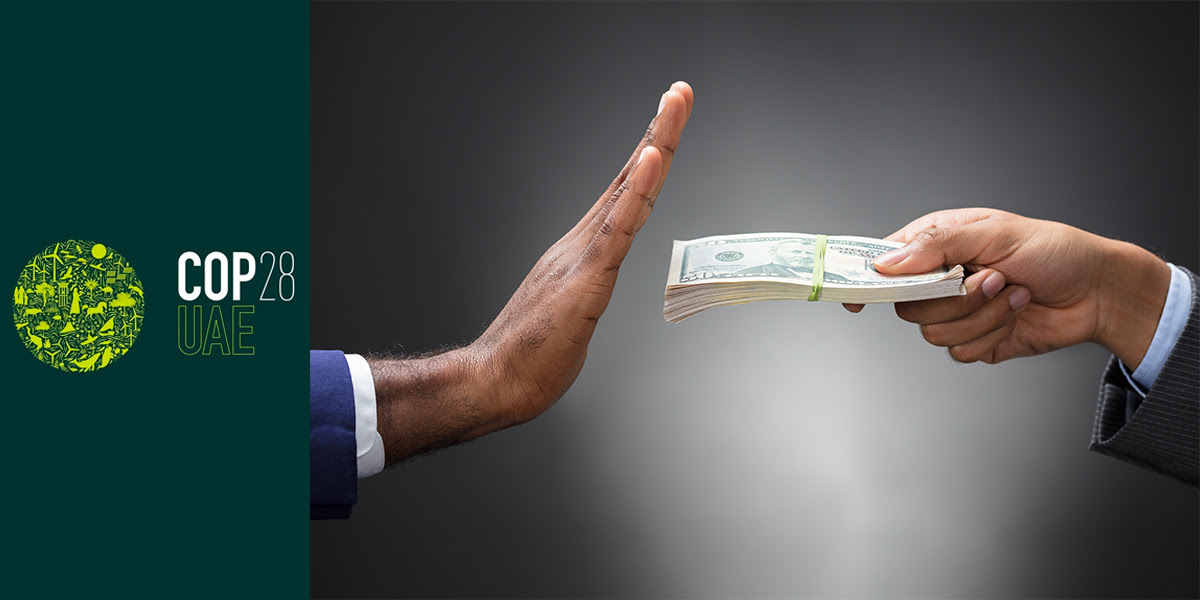
By NJ Ayuk, Executive Chairman, African Energy Chamber
|
|
|

|
SANDTON, South Africa, November 29, 2023/ — By NJ Ayuk, Executive Chairman, African Energy Chamber (www.EnergyChamber.org).
It would be an understatement to say Tanzania’s Songo Songo gas field has been good for the country and its citizens. Since 2004, the project’s output has been put to work to benefit the Tanzanian economy, its domestic energy supply, energy costs, employment numbers, and the environment. With wells and a processing plant on Songo Songo Island, the public/private effort puts domestic needs first, using output to fuel the Ubungo gas-to-power operation as well as a major cement company and a village electrification program. Excess gas is sold to industrial customers across a range of industries. Songo Songo production now generates about 45% of Tanzania’s electricity, reducing the need for higher-priced imported fuel. Another important benefit? When the country’s supply of hydroelectric energy wanes because of droughts, gas-to-electric generation can be counted on to fill the gap. The development has directly created 190 jobs and made 113,809 more jobs possible. It is also significantly decreasing carbon emissions (at the Tanzania Portland Cement Company alone, CO2 emissions have been reduced by about 80,000 tons per year) and is providing a cleaner energy source at Dar es Salaam power plants by replacing diesel and heavy fuel oil (HFO). This project is just one example of what natural gas can do to boost African economies, workforces, energy supplies, and the health of both the environment and residents. Because of its great potential for replicating success stories like this across the continent, I remain convinced that natural gas is the key to a prosperous future and a just energy transition for Africa. As leaders from around the globe gather for COP28—and discussions turn to zero-emissions goals and renewable energy, I would like to respectfully point out that natural gas is clean energy. We must not, in our zeal to achieve our climate goals, dismiss the tremendous good that gas can deliver. Natural Gas and Gas Products are Clean, Assist Emissions Targets We’ve already seen natural gas’ positive impact on other regions of the globe. In America, for instance, natural gas is used more than any other fuel for generating both residential and industrial power, as feedstock to produce petrochemicals and fertilizers, and as a fuel of choice for generating electrical power. The U.S. uses roughly one-third of the natural gas produced globally, and demand for it there is growing. There are good reasons for this, beginning with the fact that natural gas is the cleanest fossil fuel. It emits 50% to 60% less carbon dioxide than coal when burned and emits up to 30% less CO2 than crude oil. If natural gas is a good option for wealthy countries like America, why shouldn’t developing nations reap the same benefits? Gas can provide readily available, clean energy for sub-Saharan African countries while their renewable energy infrastructure and technology are “catching up” to that of wealthy, highly industrialized nations. And when supplies from renewable sources like solar and wind are intermittent (as on cloudy days and when the air is still), gas can fill the gap. Natural Gas is Needed Domestically to Address Energy Poverty Wealthy countries should not be attempting to set deadlines for Africa’s transition to renewables, but that is happening. Organizations from the World Bank to the European Investment Bank are pressuring Africa to quickly phase out fossil fuels. Even African lobbyists from Kenya are calling for a 30-year phase-out. African governments and energy industry stakeholders must push back. Investors who know Africa understand the hardships that accompany the electricity deprivation that more than two-thirds, or over 620 million, sub-Saharan Africans live with. These investors should stay the course rather than distancing themselves from African fossil fuels. As I stated in my 2019 book, “Billions at Play: The Future of African Energy and Doing Deals,” lack of electricity is much more than inconvenient. It deprives people of modern healthcare and exposes them to toxins in their homes from primitive fuels. It prevents progress across economic segments from business to industry to education. The picture is a dire one and is expected to get worse due to projected population growth. Residents need electricity now, and fossil fuels can give it to them much more quickly, while green energy continues to evolve and become more prevalent. Natural gas has a critical part to play in the energy mix needed for the continent to meet its current and growing energy needs. Let’s make eliminating energy poverty a higher priority than adherence to an arbitrary, one-size-fits-all transition calendar. Natural Gas Monetization Can Finance Energy Transitions A just energy transition for Africa requires using our oil and gas resources as part of the process. The transition to renewables has begun, and there is more to come. In the meantime, however, Africa needs gas-to-electricity production and the monetization of its oil and gas resources. Capital from these resources can progressively fund the infrastructure and development needed to transition to renewables. Reaching energy transition goals will require a major influx of investment capital into African economies. As one example, for Nigeria to reach the goals of its Energy Transition Plan (ETP) it will require about USD410 billion by 2060. Overall, Africa has no shortage of natural gas reserves. A recent investment platform statistic totals them at 800 trillion cubic feet, distributed among nearly half of all African nations. What is urgently needed are strategies to attract investment, enabling this gas to be removed from its underground and undersea reservoirs, transported, and stored. Local content will always play an important part in this process. Creativity is also needed to provide solutions for inadequate production, transport, and storage infrastructure such as building downsized, modular LNG plants and using compressed natural gas (CNG) that shrinks methane to less than 1% of its normal volume for transport and storage. In closing, I’ll repeat a vital point: Natural gas is increasingly in demand globally. This presents an opportunity that Africa should take advantage of now. We must monetize our natural gas resources for the good of our economies, the health of our residents, and to grow green energy initiatives at a pace that is good for Africa. This is the message I’ll be sharing during COP28 and well into the future. Distributed by APO Group on behalf of African Energy Chamber.
SOURCE |
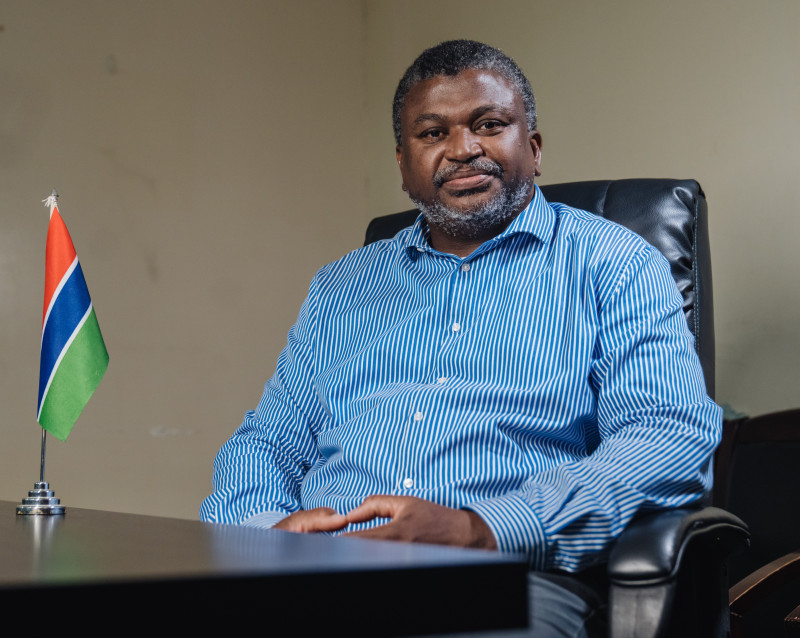
DAKAR, Senegal, November 20, 2023/ — By Dr. Ahmadu Lamin Samateh, Minister of Health, Republic of The Gambia.
In the realm of medicine, there are pivotal moments that can forever change lives. For me, that transformative moment occurred two decades ago when my path intersected with medical mission teams in our country, including Mercy Ships (www.MercyShips.org), an organisation committed to delivering life-changing surgeries to those who need it most. Witnessing their surgical interventions and the profound impact on people’s lives ignited my passion to become a surgeon.
I realised that the human body’s needs transcend borders and the Gambian people deserved access to quality surgical care.
Becoming a surgeon in The Gambia was not without challenges. With no medical school in our country at the time, I pursued education elsewhere. Armed with newfound knowledge and expertise, I returned to the country to make a positive impact on healthcare.
Currently, the landscape of surgical care and education in The Gambia presents its own set of challenges. Surgery, being a diverse field, requires specialists, and specialists are often scarce in low-income countries like ours. Many individuals suffering from surgical conditions continue to endure unnecessary pain or rely on the assistance of organisations like Mercy Ships. Bridging this gap remains a significant challenge.
In recent years the country has made notable progress, such as establishing a residency programme. This step is critical for sustainability and ensuring that we train our specialists in fields like surgery, gynaecology, internal medicine, paediatrics, and family medicine. However, expanding the scope of training to address the broad range of surgical disciplines remains a concern that also requires support from international partners.
Resource limitations are deeply rooted in the country’s healthcare sector. With a population of approximately 2.7 million, our health budget pales in comparison to the staggering €2.9 billion budget I learned about during my recent visit to a European country. Treating acute appendicitis in New York, Tokyo, London, or Banjul requires the same expertise, yet our available resources differ significantly.
The country also largely relies on imports for 100% of its medical consumables, making their cost and availability unpredictable. There is also a dire shortage of trained healthcare professionals. While we strive to equip our healthcare facilities with state-of-the-art equipment and medications, the lack of skilled personnel hampers our efforts.
Despite these challenges, the government is actively working to address the gaps in its healthcare system, in collaboration with organisations like the World Bank, WTO, UNDP, UNICEF, UNFPA, Global Fund, and the World Food Program. These efforts, while commendable, require continuous dedication and strategic partnerships to achieve meaningful and lasting change.
In the interim, we rely on the support of healthcare professionals from other countries, particularly Cuba and neighbouring African nations, to help us bridge the capacity gaps, ensuring that our patients receive the care they urgently need.
In general, access to surgical care and education remains a critical concern across the continent. Finding ways to overcome these barriers is crucial. For instance, establishing manufacturing hubs in Africa to produce medical equipment and supplies would reduce dependency on imports and make these essential items more affordable and accessible.
African countries should collaborate in training specialists, sharing knowledge and resources through partnerships and mutual training programmes. Through such partnerships we can strengthen healthcare infrastructure, improve access to quality services, and ultimately transform healthcare for the better.
However, partnerships are not without their challenges. Limited resources, both financial and logistical, often hinder the progress of low-income countries. Limited health budgets make achieving global healthcare targets a daunting task. Despite the obstacles, we must capitalise on the resources available to us and maximise their potential to provide the best care possible.
Partnerships with international organisations like Mercy Ships play a critical role in filling the gaps in surgical care. Mercy Ships’ recent field service in the country, where 92 patients were operated on and 122 healthcare professionals were trained, exemplifies the ripple effect of impactful interventions. Individuals who once faced social stigma and isolation due to their physical conditions now have a chance to thrive. Children who were unable to attend school due to disfigurements now have an opportunity to receive an education. Families burdened by the healthcare costs of their loved ones have found relief, enabling them to provide for their households.
Continuing this collaboration, we are determined to expand the scope of interventions and address other critical areas, such as cancer care. By facilitating training opportunities for Gambian healthcare professionals on board Mercy Ships, we can enhance our local capacity and ensure sustainable healthcare services for our people.
Looking ahead, our focus remains on building sustainable healthcare systems and ensuring access to quality surgery care for all. Uniting through partnerships, both within Africa and with international organisations, is crucial to overcome challenges and transform healthcare in Africa. The time for action is now! Together, we can bring hope, healing, and a brighter future to the millions of individuals who deserve nothing less.
SOURCE
Mercy Ships
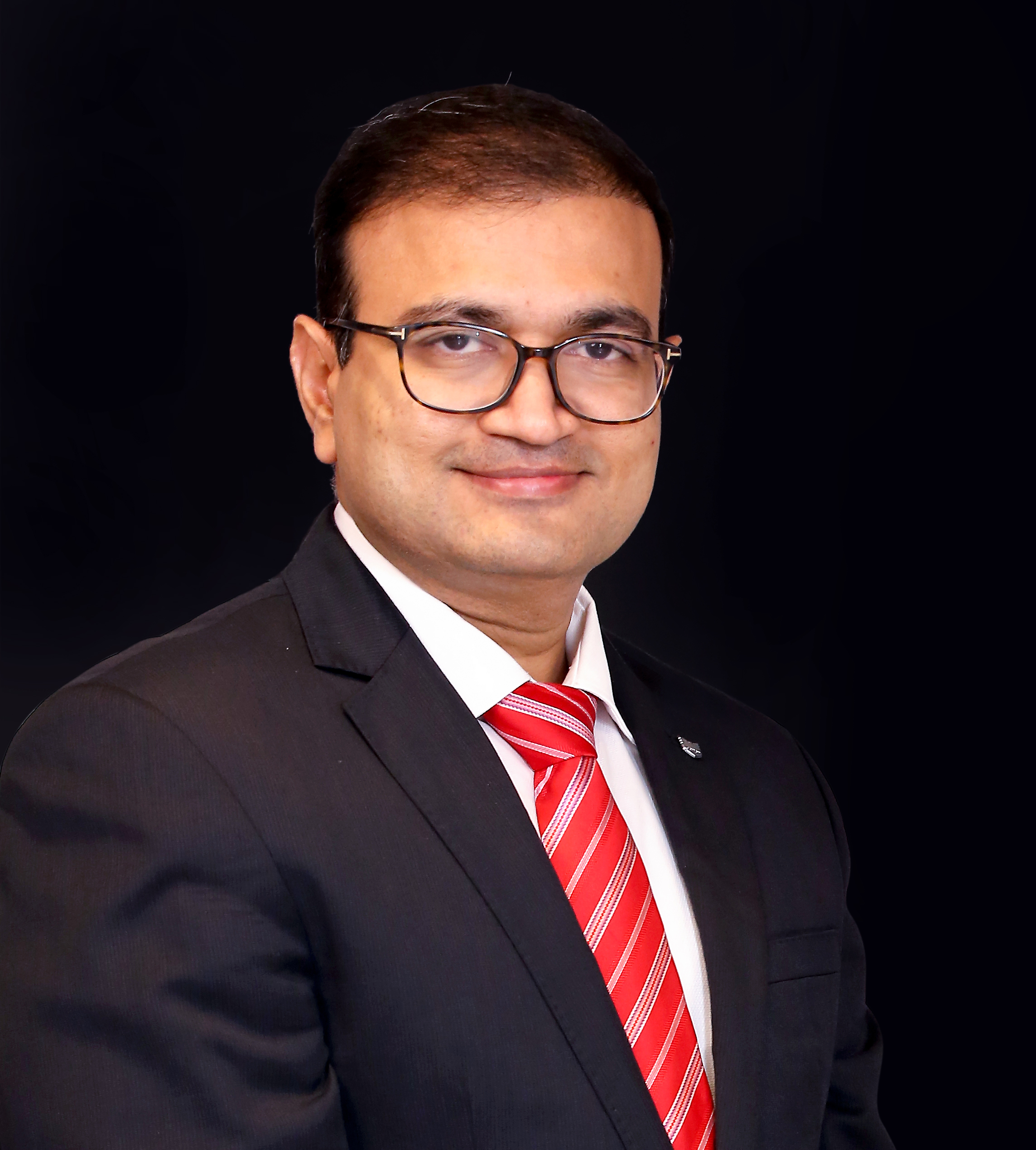
By Somesh Adukia, Managing Director – Canon Central and North Africa
In recent years, Africa’s interior decor industry has witnessed a remarkable surge in the demand for printed decor solutions, a trend that shows no signs of slowing down.
With the African printing industry projected to reach a staggering value of US$235.3 million by the end of 2031, the timing couldn’t be better.
The market remains vibrant and promising, offering lucrative growth prospects for print service providers (PSPs) across various sectors of interior decor, including wallcoverings, fine art prints, and applications in both residential and commercial settings. According to Big Picture Magazine and Keypoint Intelligence’s 2022 ‘Application and Utilization Survey’, interior decor and wall coverings were among the top five most profitable applications for PSPs in the current market landscape
Enhancing Consumer Experiences
This flourishing trend is driven by a confluence of factors tailored to meet evolving consumer habits in Africa. The surge in e-commerce popularity has compelled global retailers to focus on delivering seamless online and in-store shopping experiences.
Simultaneously, the importance of enhancing the aesthetic appeal of retail spaces and creating immersive customer experiences has soared. From wayfinding and point-of-sale solutions to floor and display graphics, retail decor is evolving rapidly. Brands are increasingly employing colourful signage and banners to support seasonal celebrations and events, aiming to draw customers back into physical stores.
The rise of pop-up shops and markets presents new opportunities for PSPs to provide turnkey print-based solutions that empower small businesses to create a captivating brand identity and engage in effective guerrilla marketing strategies.
Canon has been active in the decor segment for many years, with a range of wide format production solutions, specialist software and media, and extensive expertise in interior print applications. With such a plethora of vibrant printed decor applications available and the market projecting continued growth, it’s a great time for print businesses to dive into this expanding market and show customers just how effective print can be.
Printed Decor in Hospitality and Workplaces
Printed decor plays a pivotal role in the hospitality sector, contributing to branding, ambiance creation, and enhancing the overall guest experience. A similar trend extends to the workplace, where employers are increasingly turning to digitally printed decor elements to create more attractive and inspiring environments for their employees. This strategy is designed to entice staff back into the office, marking one of several approaches taken by organisations to adapt to evolving work dynamics.
Africa’s Dynamic Print Decor Market
However, thriving in the African printed decor market demands adaptability. The market is dynamic, and characterized by ever-changing design and fashion trends, meaning that décor service providers must remain agile, responsive, and adaptable to remain competitive.
Moreover, adopting a consultative mindset is critical for PSPs. They must proactively engage with prospective customers, presenting them with creative solutions and showcasing the myriad of available options. This involves inspiring clients with achievable ideas on how to refresh their spaces and explaining the practical and cost advantages of print-on-demand over traditional decorating and renovation methods.
PSPs can further inspire clients by going beyond printing customer designs and providing them with creative interior décor content ideas. This collaborative approach opens up opportunities for partner artists, photographers, and designers to showcase their work through an expanded network of online marketplaces.
The New World of AI in Design
The emergence of generative AI presents an exciting opportunity for PSPs to create and inspire by bringing new visual concepts to life. Whether starting from scratch or updating previous images and concepts, generative AI can facilitate innovative design processes with relative ease.
With an array of vibrant printed decor applications available and the market poised for continued growth, this is an opportune moment for print businesses in Africa to immerse themselves in this expanding market and demonstrate to customers the remarkable effectiveness of print in transforming living and working spaces.

The global online trading market has witnessed a remarkable upswing, fuelled by technological advancements and the widespread accessibility of the internet. This surge in popularity and increase of the global market size to USD9.32bn in 2022 has been instrumental in democratising investment opportunities, enabling individuals from various corners of the world to partake in online trading.
Based on a comprehensive analysis conducted by Grand View Research in 2020, the global online trading market showcased a valuation of approximately USD15.47 billion in 2019. Notably, this market has been on an upward trajectory, with a projected compound annual growth rate (CAGR) of 9.7% from 2020 to 2027.
With the advent of user-friendly platforms and cost-effective trading options offered by numerous online brokerages, retail investors are increasingly recognising the potential of online investing. This realisation has ushered in a new era of financial inclusion, empowering individuals to take charge of their financial futures.
A closer look at the African Market
Within the realm of online trading, Africa emerges as a market of untapped potential, poised for remarkable growth, as highlighted by the latest quarterly report from Finance Magnates.
While developed markets face saturation due to aging populations, Africa’s online CFD trading market is experiencing significant upward momentum, primarily due to a high youth population ratio, high mobile penetration, and technological improvements. Notably, the continent boasts the presence of the world’s five fastest-growing economies, with Nigeria leading the charge, fuelled by its population of over 200 million.
Even a modest conversion of just 1% of the population into online traders would yield an impressive 200,000 active traders. To put this into perspective, the number of active CFD/forex traders in the United States currently hovers around 200,000, and in Germany, it reaches approximately 100,000.
Africa’s vast growth potential and evolving regulatory landscape makes it a desirable destination for global expansion, with several reputable players such as Admirals steadily moving into Africa.
The Impact on Emerging Markets
Emerging markets are reaping a multitude of benefits from the rise of online trading, which is transforming their financial landscapes in significant ways. One prominent advantage is the enhanced accessibility and financial inclusion it brings. Online trading platforms have opened doors for individuals who were previously excluded from traditional investment opportunities, empowering them to participate in global markets.
Additionally, online trading enables investors in emerging markets to diversify their investments beyond local markets, reducing dependency on a single economy and thus spreading risk.
Moreover, lower costs and fees associated with online trading make it more affordable for individuals in these markets to engage in trading activities. Furthermore, the impact of online trading goes beyond personal finance, contributing to economic growth, job creation and the establishment of new businesses.
This growth, in turn, generates employment opportunities across various sectors such as finance, technology, and customer support services. Overall, the benefits of online trading in emerging markets extend far beyond financial gains, driving inclusive growth, fostering economic stability, and creating avenues for prosperity.
Embracing Challenges and Opportunities within the African Market
While the African market showcases immense growth potential, it is not without its fair share of challenges, setting it apart from more developed markets. One significant headwind is the presence of political instability, which can create an uncertain investment environment.
Additionally, currency fluctuations pose a risk, making it crucial for investors to carefully manage their exposure to mitigate potential losses. Moreover, the higher levels of risk associated with investing in emerging markets can impact investor confidence, requiring a cautious approach and thorough risk assessment.
Navigating Africa’s often complex and variable regulatory landscape presents another potential hurdle. Whilst regulation across the African regions vary in terms of transparency and sophistication, most countries have been working to refine their regulatory frameworks to promote stability, transparency, and investor confidence.
Unlocking the Power of AI: From Threat to Empowerment
Artificial Intelligence (AI) has emerged as a formidable tool that empowers individuals in the realm of online trading, dispelling the notion of it being a threat. With the ability to process and analyse vast volumes of data, including market news, social media sentiment, economic indicators, and historical trading patterns, AI enhances decision-making processes for traders. By quickly extracting valuable insights from complex data sets, AI equips traders with a competitive edge, helping them make more informed and strategic investment decisions.
Furthermore, AI finds utility in customer support services through the deployment of chatbots, streamlining interactions and providing timely assistance to traders. Additionally, AI plays a crucial role in fraud detection, leveraging its analytical capabilities to identify suspicious patterns and safeguard the integrity of trading platforms.
However, it’s important to note that while AI provides valuable insights and assistance, its effectiveness is dependent on the quality of human input and requires human assessment for accurate decision-making. AI acts as an enabler rather than a replacement for online trading platforms, working in tandem with human expertise to optimise trading experiences and outcomes.
By embracing AI as a powerful tool, traders can harness its capabilities to navigate the complexities of the market, fostering growth and innovation within the online trading industry.
The Rise of Neobrokers: Navigating Innovation and Regulatory Oversight
A notable trend in the online trading industry is the emergence of neobrokers; app-based platforms that have gained traction among investors. Neobrokers represent a disruptive force, offering user-friendly interfaces and streamlined experiences. However, regulators closely monitor this development to ensure investor protection and mitigate potential risks associated with this innovative approach.
As neobrokers simplify access to markets and foster a more inclusive environment, they have the potential to encourage risk-taking behaviours among traders. This balance between innovation and regulatory oversight becomes crucial as regulators strive to strike a delicate equilibrium, ensuring market integrity and investor safeguards, while fostering innovation and accessibility.
The evolution of neobrokers is a fascinating development to watch within the online trading industry, and regulators remain vigilant in adapting to this changing landscape to maintain a fair and secure trading environment.
Additionally, the rise of AI and neobrokers presents new dimensions to online trading, empowering traders with advanced data processing capabilities and innovative platforms.
However, regulatory oversight remains crucial to ensure investor protection and maintain market integrity. By leveraging the benefits of technology, embracing regulatory developments, and fostering a balanced approach, the online trading industry is poised for continued growth, fostering financial inclusion, and transforming the way individuals participate in global markets.
In conclusion, the global online trading industry is undergoing a transformative phase, with remarkable growth and opportunities unfolding. Emerging markets, such as Africa, hold immense potential for expansion, driven by factors such as accessibility, diversification, lower costs, economic growth, and job creation.
Trading involves Risk.
First published: February 16, 2023 10.26am SAST
By: The Conversation
The African Union (AU) – made up of 55 member countries – has made significant progress with integrating the countries of the continent and giving them a voice in global politics.
Over the past two decades it has developed meaningful policies on peace and security, and trade, like the African Continental Free Trade Area. The African Union Commission helps set the agenda and represent African interests in global forums alongside important partners like the United Nations and the European Union.
But the AU still has a long way to go to achieve the political, economic and cultural goals set out in Agenda 2063, adopted in 2013.
I was an adviser to the union for over a decade and I am now the editor of the Yearbook of the African Union. In my view, progress in implementing the pan-African agenda has stalled. This is partially due to the challenging dynamics in how member states, the AU’s governing organs and external partners relate and pursue their interests.
The annual Assembly of African Heads of State and Government offers an opportunity to consider these issues and decide how to resolve them. In 2023, the summit will be held in Addis Ababa, Ethiopia, from 18 to 19 February.
I believe that four issues have stalled progress in the pan-African agenda. These issues relate to collective decision making, independent financing, division of labour and the adoption of common policies that would nurture strategic partnerships.
1. Member states have implemented too few collective decisions
The AU has adopted several important legal documents which member states are supposed to adopt for themselves, too. These documents – signed during heads of state and government meetings – must be ratified and then deposited with the union.
This usually happens very slowly and only very patchily. The reasons vary. According to one of the few academic inquiries into the subject, these reasons include a lack of political will, administrative lethargy and deficits in technical capacity among member states.
The AU has no power to force member states to carry out common decisions. It can only monitor compliance on three legal instruments, including the 2007 African Charter on Democracy, Elections and Governance).
To see progress in policy implementation, member states will have to think seriously about how to arrive at binding, transparent and enforceable mechanisms.
One way to do this would be through introducing a clear and limited window of time for ratifying legal documents. The union could also make it mandatory to report on the implementation of all decisions.
2. Independent finances have not been established
The AU’s ambitious plans depend heavily on external finance. Almost two-thirds of the union’s annual budget comes from donors, dubbed international partners.
Contributions from member states account for the remaining third. However, these tend to come late, or in some cases only in part. About 30 member states default partially or completely each year. In 2007, Algeria, Egypt, Libya, Nigeria and South Africa volunteered to make higher contributions. They account for 45% of the funds raised by African governments. Morocco, which rejoined the AU in 2017 after a 33-year absence, has replaced Libya as a major donor.
The AU’s financial reform process began in 2015 to make the organisation more self-reliant. Members committed to paying a 0.2% levy on various goods imported from outside the continent.
This money is expected to support 100% of the union’s operational budget (which includes maintenance and salaries), 75% of the programme budget (which includes implementation of policies) and 25% of the budget for union-led peace operations.
The union still must decide how the 100/75/25 target will be met by 2025. In the current budget (US$655 million for the 2023 financial year), the financial shortfall stands at US$201 million, a 31% deficit.
3. The division of labour between the African Union and regional economic communities remains unclear
Relations between the African Union and the eight officially recognised regional economic communities are based on two principles. These are subsidiarity (where, whenever possible, the regional level takes the lead) and comparative advantage (where the institution that’s better equipped to deal with a situation leads).
A 2017 report on the operations of the AU noted that the division of labour between the union and regional communities was “unclear”. This caused a duplication of roles and a lack of clear boundaries.
A new protocol on the relationship between the AU and regional economic blocs was adopted in 2020. But its details are yet to be finalised.
4. The instruments of a common global policy are either underused or underdeveloped
The AU is working to increase its bargaining power in global politics by developing common policies and nurturing strategic partnerships.
But because of member states’ insistence on sovereignty, few common policies have been developed. The most prominent one relates to the reform of the UN Security Council to give Africa more power.
In terms of strategic partnerships, the AU currently is focusing its activities on three multilateral (Arab League, European Union and United Nations) and five bilateral (China, India, Japan, South Korea and Turkey) partnerships. However, the frequency of meetings, scope of activities and meaning of the word “strategic” vary widely.
This year’s Assembly of African Heads of State and Government is expected to attend to these urgent items:
The financial dependency issue will be tackled by the African Union Executive Council in July.
In my view, there is likely to be progress on some of these issues and stalling on others. What’s at stake is Africa’s place in the world and averting harm to the continent.
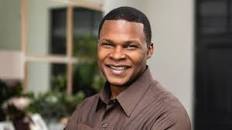
|

By Franco Macchiavelli
Market Analyst at Admirals and Certified European Financial Advisor (EFA) (Nr 35591)
5 September 2023
The 15th BRICS Summit, hosted by South Africa in Johannesburg from 22 to 24 August, culminated in the widely anticipated announcement of a soon-to-be expanded BRICS bloc, with the admission of six new member countries to this economic grouping as from January 2024.
In the build-up to this year’s BRICS Summit there has also been some speculation that the grouping might discuss the issuance of a joint currency to compete with the dollar as the reserve currency with world hegemony.
However, this issue was not addressed during the event. South Africa’s representative stated that such an approach was never considered, and India’s foreign minister also dismissed the possibility.
Data from the IMF’s 2023 World Economic Outlook shows that together, these five economies – Brazil, Russia, India, China, and South Africa – account for roughly 40 per cent of the world’s population and 20 per cent of global trade flows. Despite the logic behind the idea to introduce a new currency in place of the dollar, the truth is that this would be rather complicated to implement – at least in the short to medium term.
If the idea were to come to fruition, there would be two main approaches:
In short, both paths are complicated to pursue and present significant obstacles for member countries.
What is certain, however, is that these countries aim to reduce their dependence on the dollar in the future. Currently, when the BRICS sell their products to the rest of the world, they receive payments in dollars and accumulate these dollar-denominated reserves. However, fluctuations in the value of the dollar over the years have posed a significant depreciation risk for these countries.
Most of the BRICS have been accumulating dollar reserves for years, and with the effect of inflation, these have been affected because they have mostly not imported goods, but accumulated reserves.
What would happen if instead of accumulating dollar reserves, they accumulated reserves in another currency through trade among the members themselves?
This brings to mind the recent case of trade between Russia and India:
India has been buying oil from Russia at a significant discount to the price in the West. However, these purchases have been paid for in rupees. So, if we talk in terms of trade, Russia sells oil to India and receives payment in rupees, but collaterally faces a significant currency risk, i.e., that rupees depreciate over time even more than the dollar.
Moreover, rupees are only accepted in India and do not have the global hegemony to buy any asset across the world, which complicates the management of its international reserves, unlike the dollar, which is accepted globally in the purchase and sale of any good, asset or service.
Ultimately, despite the search for alternatives to the dollar, replacing it with a new currency poses considerable challenges for the BRICS, and makes it unlikely to manifest itself in the near future due to the complexity of its implementation.
Naturally the addition of six additional nations – Argentina, Egypt, Ethiopia, Iran, Saudi Arabia, and the United Arab Emirates will multiply the complexities significantly.
It will be interesting to see what impact the BRICS expansion will have on the global economy and geo-politics but for now the dollar will continue to be the dominant trading currency.
Disclaimer: The views expressed in this article reflect those of the writer and does not represent the official view of the Eco-Enviro News Africa,magazine.

Eco-Enviro News Africa AFSIC Feature
Natural resources rich Africa’s continuous growing economic competiveness within the context of a globalized economy, has for decades attracted and continues to attract international investor attention.
Africa’s Unique Selling Points
Aside accounting for over 60 percent of the world’s total arable land served with more than abundant surface and ground water resources,the continent also holds a huge proportion of the world’s natural resources, both renewables and non-renewables. In addition, the continent is home to some 30 percent of the world’s mineral reserves with particular reference to critical minerals needed for powering electric vehicles, eight per cent of the world’s natural Gas and 12 percent of the world’s oil reserves.
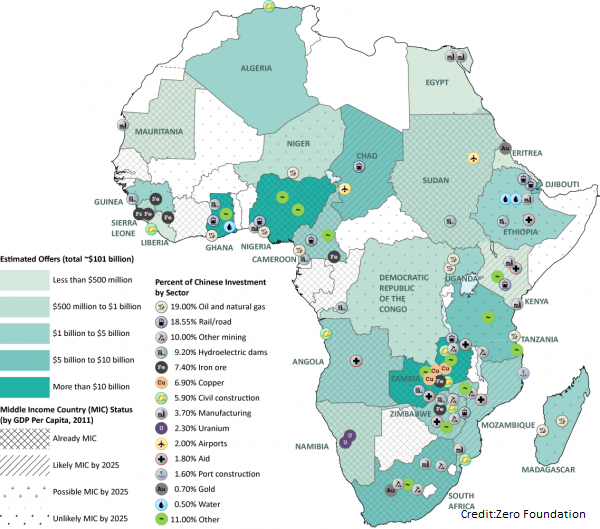
Africa’s population as a whole is very young, with 60% of the entire continent aged below 25, making it the youngest continent in the world, in relation to its population makeup. All of the world’s top 10 youngest countries by median age are in Africa and household incomes and consumption are projected to rise.
Share of World’s Fastest Growing Economies.
Africa has some of the fastest-growing economies in the world, African nations are playing an increasingly significant role in the global economy.
Africa’s pre-Covid-19 top five performing economies are projected to grow by more than 5.5% on average in 2023-2024 and to reclaim their position among the world’s 10 fastest-growing economies. These countries are Rwanda (7.9%), Côte d’Ivoire (7.1%), Benin (6.4%), Ethiopia (6.0%), and Tanzania (5.6%).
Returns On Investments
A report by the UN Conference on Trade and Development states that between 2006 and 2011, Africa had the highest rate of return on inflows of Foreign Direct Investment: 11.4%. This is compared to 9.1% in Asia, 8.9% in Latin America and the Caribbean
According ECA sources, the African continent could become the most profitable region in the world for foreign direct investment (FDI), with a rate of return of 14%, compared to a world average of 7.1%.
Some popular sectors for investment include primary agriculture and agro processing, mining, oil and gas, real estate, technology, tourism and hospitality and infrastructure. The mining industry in Africa is a major contributor to the continent’s economy, with abundant deposits of precious metals and minerals.
African policy makers believe FDI can help to provide technology, marketing and management skills, make up for domestic capital shortfalls, generate both efficiency and technology transfer in local firms, and facilitate access to foreign markets
The importance and relevance of Africa’s leading global Investment event, “Investing in Africa” could therefore be best appreciated against this background.
Scheduled to take place from the 8th-10 October,2023 in London, UK, the event seeks to draw over 1,500 delegates worldwide. In participation are thirty-two (32) African countries, thirty-six (36) other countries five hundred and ninety-nine (599) African delegates, six hundred and fifty-nine (659) delegates from other countries, three hundred and forty-one (341) Speakers and Chairs, twenty-seven (27) Media Partners, fifty-two (52) Sponsors and thirty-five (35) networking stands.
The Managing Director, Rupert McCammon in an interview earlier this year noted that, AFSIC now in its 10th year, is believed to be the largest African investment event taking place annually outside Africa and has become one of the most important conduits of investment into Africa.
Over the past ten years AFSIC, Mr. McCammon intimated, has been entirely focused on bringing together Africa’s business leaders and Africa’s most interesting investment opportunities with the continent’s most important investors and dealmakers to facilitate new investment into Africa.
Wide ranging support from exceptional partners and sponsors AFSIC, over the past ten years, he noted, has led the way in profiling investment opportunities from Africa and providing an excellent forum and associated platforms to showcase these opportunities to investors.
AFSIC is a conference that is very focused on networking and delegates attend year on year as they feel the variety of interactions and the superb content delivered all contribute to getting deals done and investment secured.
Networking Opportunities
Supported and sponsored by some of the leading Africa-focused corporates, AFSIC 2023 will build upon the last ten years’ successes.
The AFSIC 2023 networking opportunities include: matchmaking sessions facilitated through the sophisticated Event and Meeting App which goes live one month prior to the event ,a networking exhibition with key sponsors and partners offering enhanced opportunities to meet with them, numerous sessions dedicated to meeting a wide range of representatives from investor groups including: DFI’s, Impact Investors, Private Equity Investors and Venture Capital Investors, the regularly sold-out Meet African Dealmakers event – this year to be jointly sponsored by the European DFIS,country investment summits focused on the fastest growing African economies with informal networking at the end of each session ,various evening social functions hosted by our partners and sponsors
Speakers and Panel events
The event is broken down into Industry Streams and this year these will include Advancing Agriculture, Building Africa, Banking on Africa, Fintech Innovation, Power Africa, Sustaining Africa and Informed Investing in parallel to country-focused investment summits and quick-fire sessions highlighting exceptional projects.
Speakers are from a wide pool of exceptional African business leaders who are looking to promote their Africa-focused company from an investment perspective as well as some of the leading institutional investors and dealmakers focused on driving investment into Africa.
Sponsors and Partners
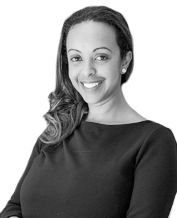
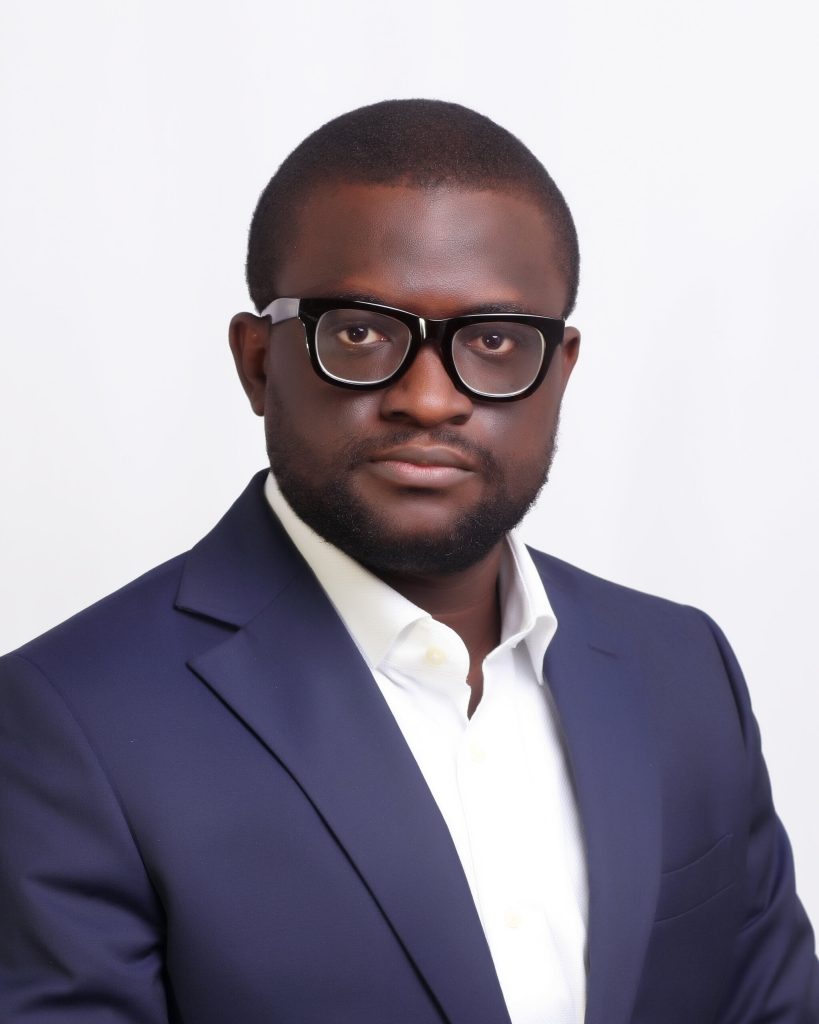
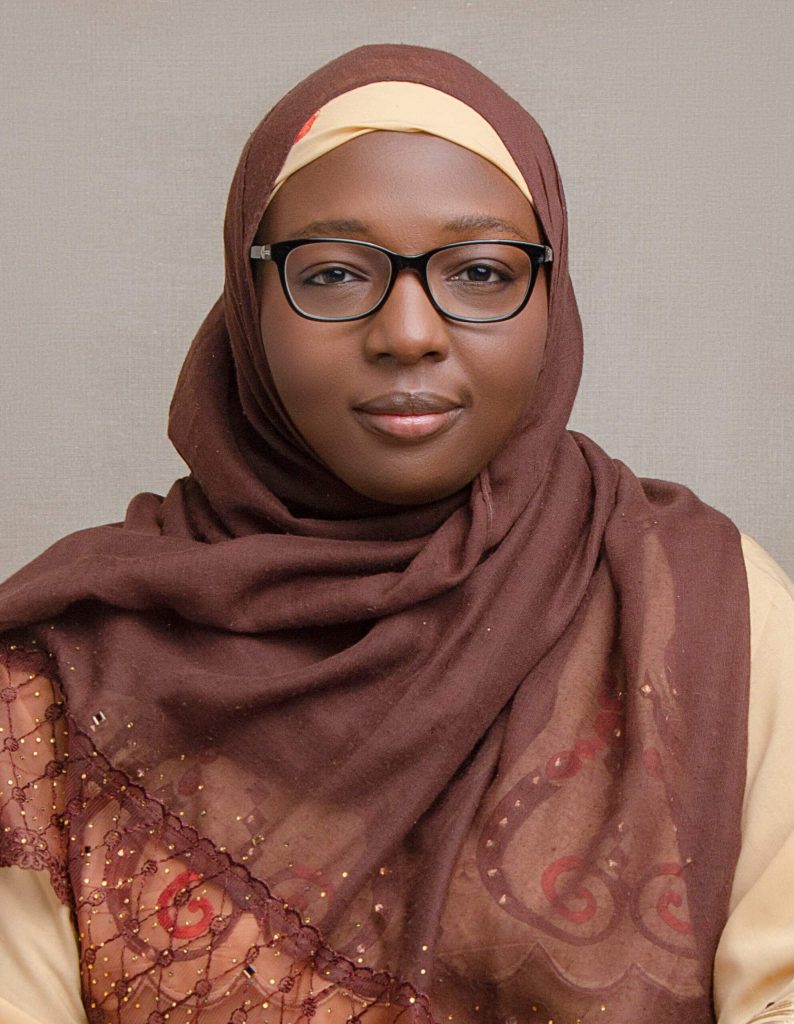
AFSIC 2023 welcomes British International Investment, FSD Africa, Executives in Africa, 27Four, Icecap, RMB, Fitch Ratings, Bank One, Alpha Morgan, Benchmark International, Pearlbridge Capital Managers, Mitco, Carey Olsen, Proparco, FMO, NIDP and DEG to date and negotiations are still ongoing with many other exceptional companies who see the value of the association with AFSIC in October and the all year round exposure via the digital platforms.
The event media and partners are also critical in raising the profile of both our sponsors and the conference itself.
Digital Presence and Reach
AFSIC has exceptional digital reach with a network of over 140 000 mailable contacts including institutional investors, investment bankers & financial intermediaries, African business leaders, providers and executives. The Group’s 3 websites capture 7,5 million impressions annually with impressive top 10 SEO ranking for over 1600 keywords relating to business, trade and investment in Africa. In addition, AFSIC 2023, like AFSIC 2022, will have all content recorded and live streamed enabling AFSIC to have an exceptional Pan-African reach.
AFSIC Digital platforms
AFSIC boasts two award-winning digital dashboards focused on matching business, trade and investments opportunities across all African countries and all business sectors.
The Africa Business Community provides a vast network of African businesses, global businesses, government agencies and service providers. In 2023 AFSIC is working closely with Prosper Africa, a US Government initiative, to substantially enhance US-Africa trade.
AFSIC’s sophisticated matching algorithm ranks and matches business opportunities and “calls for business” posted on our Africa Business Opportunities Dashboard, allowing interested parties to connect through this free and open access platform.
There is also a closed AFSIC African Investments Dashboard which is catered to matching institutional investors and African companies seeking capital with investor-ready documents.
Expected Traction from Business Opportunities Posts
In 2022 over 2 million personalised business matching emails were sent and AFSIC database sees 30 000 new contacts joining annually, all with an interest in business, trade and investment opportunities across Africa and all business sectors.
AFSIC African Investments Dashboard has a network of 25 000 investors. AFSIC’s recommendation is that, all business opportunity owners make their descriptions as detailed and clear as possible to appear attractive to interested parties and investors.
Business Opportunities Dashboard versus AFSIC African Investments Dashboard
The Africa Business Opportunities Dashboard offers free registration, access and connections for all users using automated matching algorithms and individually customised e-communication strategies. The AFSIC African Investments Dashboard is a closed dashboard only viewable by registered investors and uploads are only available for high quality projects seeking equity, debt or hybrid investment capital. We also offer additional bespoke introduction services for our AFSIC African Investments Dashboard clients.
Country Investment Summits and Networking Sessions
AFSIC 2023 will offer country investment summits for the larger economies in Africa and these sponsored comprehensive summits will comprise: •a panel discussion led by in-country experts sharing their insights on how to successfully navigate the investment ecosystem in each country, Quick fire Pitch Sessions on specific investment opportunities across business sectors in each country, informal business networking to meet some of the countries’ business leaders, government representatives and investors Angola Nigeria Rwanda Egypt Morocco country networking.
Informal country networking sessions at AFSIC 2023 will provide delegates with an opportunity to meet other interested investors and in-country experts to discuss the investment climate
Raising capital for your own fund?
AFSIC provides opportunities for fund executives to attract investment into new funds through introductions to Fund of Fund, DFI, SWF Investors can share their funds’ metrics, mandates and past performance through formal presentation sessions, investor panels, formal and informal networking sessions and B2B meetings supported by the AFSIC African Investments Dashboard digital database of investment opportunities and the sophisticated Event and Meeting App
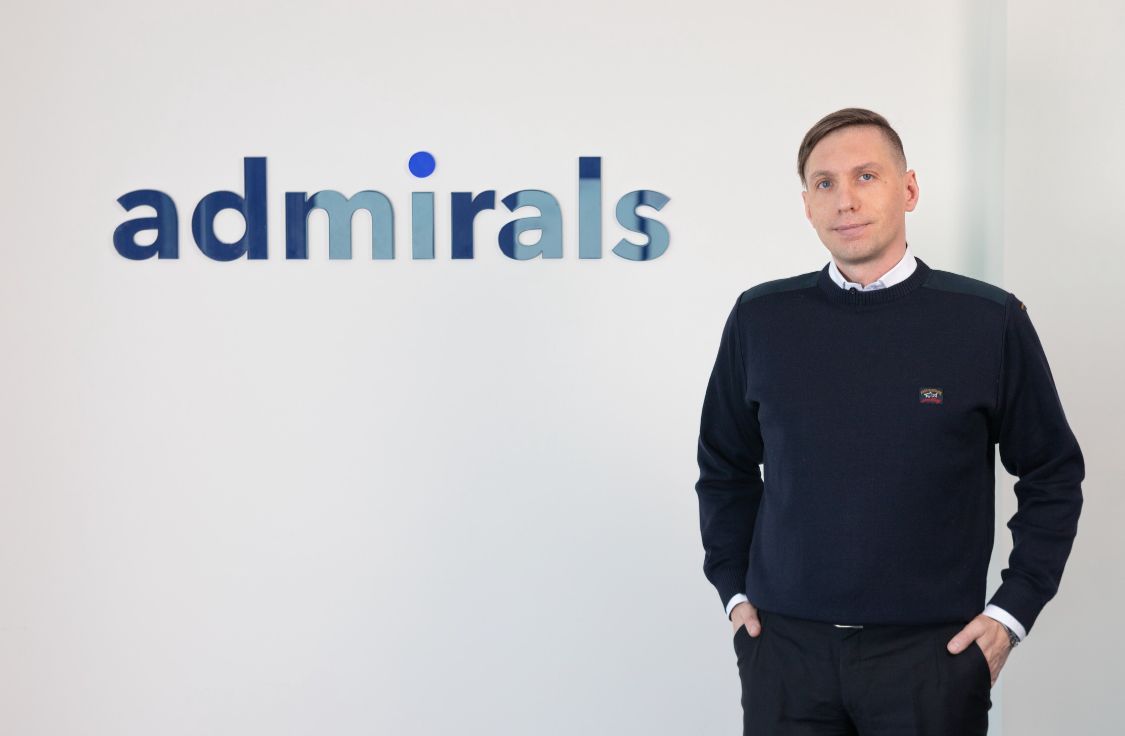
By Boriss Gubaidulin, Admirals Africa Director
The term “behavioural finance” which took hold in the 1990s examined what role emotions play in investment decision-making. Why should psychology and trading be linked?
The simple answer is that we are hard-wired as humans to be emotional, and – let’s face it – when it comes to financial matters, emotional consideration come into play.
In investing, the two most powerful emotions have been identified as fear and greed. So much so that CNN Business created the Fear & Greed Index to measure exactly how emotions influence how much investors are willing to pay for stocks.
The index assumes that fear drives stocks lower while greed boosts stock values. In more recent years, similar indices have been developed, such as the Fear & Greed Index for Cryptocurrency trading.
If emotions are an inevitable part of trading, how can we harness the power of emotions to help and protect us instead of holding us back?
The first step is to understand your emotions. On a practical level, here we look at various behavioural biases which come into play. Once we understand these biases, we will be more capable of recognising unhealthy psychological patterns and states of mind, and better equipped to react in a way to protect ourselves.
The overconfidence bias
Watch out for trading euphoria. It’s not uncommon for traders to complete a winning streak and then believe that they can’t get anything wrong in the future. To believe this would be unwise and will only end in failure. Make sure you always analyse your trading sessions and look at your wins and losses in detail. Reviewing your trades in an honest way is a key aspect of beating your emotions in trading psychology.
Learn to be comfortable with accepting that mistakes are inevitable, especially in the early stages. It’s all part of the learning curve and the development of your trading psychology.
The anchoring bias
Anchoring is a tendency to rely on what is already known to a trader for decision making in the future, instead of considering new situations and the changes that they can bring.
At times, anchoring tends to cause traders to rely on obsolete and irrelevant information, which of course won’t help you trade successfully. In practical terms, the anchoring bias manifests itself in traders holding losing positions open for too long, simply because they fail to consider the options that are outside of their comfort zone.
The confirmation bias
The confirmation bias means looking for information to support a decision you have made, even if it wasn’t the best decision. This is simply a way of justifying your actions and strategies. The problem is that, by doing this, you’re not actually learning and improving your methods, and are likely to continue making the same trading mistakes.
The loss aversion bias
The loss aversion bias can be explained as such: when considering options before making a choice, we are likely more willing to give preference to a lower possible loss over a higher possible reward.
Fear is a much more powerful motivator than greed. In practice, a trader with a loss aversion bias is more akin to cutting profits when they are still low, while allowing bigger drawdowns.
It is important to note that emotional self-knowledge cannot be done in isolation – make sure you support your trading journey and personal development with continual learning through a reputable partner, with a solid reputation backed by superior knowledge.
It is also important to know that online trading carries risk – make sure you deal with a reputable broker
Risk management and education: the role and importance of a licensed, reputable broker
Risk management and education are vital components when trading in Contracts for Difference (CFDs). Admirals, the global neobroker who recently established its presence in Africa, emphasizes the importance of choosing a reputable broker to help guide you through your trading journey.
With more than 20 years’ experience, Admirals offers a comprehensive educational package, that can help you learn how to properly mitigate your risk. Here’s how:
1. Solid risk management
Develop, implement, and adhere to sound risk management strategies based on setting stop-loss orders, healthy portfolio diversification, and the appropriate position size according to your risk appetite. Admiral’s four-point risk management process involves the following:
2. Continuous learning
The financial markets are constantly evolving, and staying updated on market news, economic events, and trading techniques is important. Admirals offers a wealth of educational resources, including webinars, articles, and video tutorials to help traders stay informed and improve their skills.
3. Practicing with a demo account
Before diving into live trading, it is essential to practice in a risk-free environment. Admirals provides a demo account that allows you to test your strategies and familiarize yourself with the trading platform without risking real money.
4. Advanced trading platforms
Admirals offers MetaTrader 4 and MetaTrader 5, providing you with powerful tools and features to optimize your trading strategies and stay on top of market movements.
5. Dedicated customer support
Admirals offers localized support to assist you on your trading journey and to help you navigate the financial markets with ease. A team of customer support representatives is available to assist you.
6. Wide Market Access
Admirals offers a range of more than 3700 CFD assets to trade, including CFDs on forex, stocks, commodities, stock indices, bonds and ETFs, allowing for a diversified portfolio and access to global markets.
Admirals continues to expand globally to provide its clients around the globe with advanced trading tools, access to financial security and various customer care policies. Admirals is licensed in the Seychelles, UK, Cyprus, South Africa, Australia, Jordan, Canada and Kenya.
In conclusion, risk management, continuous education and choosing a reputable broker like Admirals are important components in CFD trading. By prioritising these elements and leveraging the education and support provided by Admirals, you can embark on your journey in the ever-changing financial markets with more confidence.
Trading involves risk.